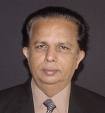ISRO planning to turn its focus on study of oceans
 Scripting a new tale of success with successful launch of its moon mission Chandrayaan-1 last year, the Indian Space Research Organization (ISRO) is now looking to turn its focus on the study of oceans. The ISRO Chairman G Madhavan Nair on Wednesday said that ISRO is planning to start its study of oceans, the driving force for monsoons, which play important role in the national food production.
Scripting a new tale of success with successful launch of its moon mission Chandrayaan-1 last year, the Indian Space Research Organization (ISRO) is now looking to turn its focus on the study of oceans. The ISRO Chairman G Madhavan Nair on Wednesday said that ISRO is planning to start its study of oceans, the driving force for monsoons, which play important role in the national food production.
According to the ISRO Chief, oceans have long been great source of food, energy, and drugs. They have played significant role in the overall national development, by triggering off monsoons and by providing cost effective medium for transportation. The study of oceans will really benefit India, which is almost a peninsula.
Speaking at the convocation of Fakir Mohan University on Wednesday, the ISRO Chairman and Secretary of the Department of Space of Union government, G Madhavan Nair said, "The Indian Space Research Organization (ISRO) plans to launch a satellite to chart sea levels, a vital indicator of climate change, on a globe-circling voyage. Right now, the project is on the research and development stage. The satellite will be lunched soon."
The ISRO Chief told, "With help of the satellite, we would study the winds on the ocean surface, sea surface height variability and the wave heights and can collect information about fishes. The satellite will provide quantitative description of the evolving state of the upper ocean and the pattern of ocean climate variability, including heat, fresh water storage and transport.”
The ISRO Chief told that the researchers will be able to know speed and direction of ocean currents and how much of the suns energy is stored by the ocean, by measuring sea-surface height, or ocean surface topography.
Mr. Nair said, "Combining ocean current and heat storage data is key to understanding global climate variations. These technological advances will allow scientists to monitor conditions in ocean coastal regions -- home to about half of earth's population. However, the next mission will improve our knowledge of tides in coastal and shallow seas and internal tides in the open ocean, while improving our understanding of ocean currents and eddies.”
The ISRO Chief also said that India is presently facing the biggest challenges from increasing population, and to face the challenges, the county needs to double its foodgrain production by 2020.
Mr. Nair said, "We are confronted with ever increasing population, illiteracy and unemployment which is putting tremendous stress on natural resources, including land and food. Therefore, there is an urgent need to double foodgrain production, which is 220 million tonnes now, by 2020 to ensure a square meal for every citizen.”
When asked where he sees India after 10 years, Mr. Nair replied, "We are already having a leadership position in the world. We will consolidate and be one of the prominent nations as far as space research is concerned."